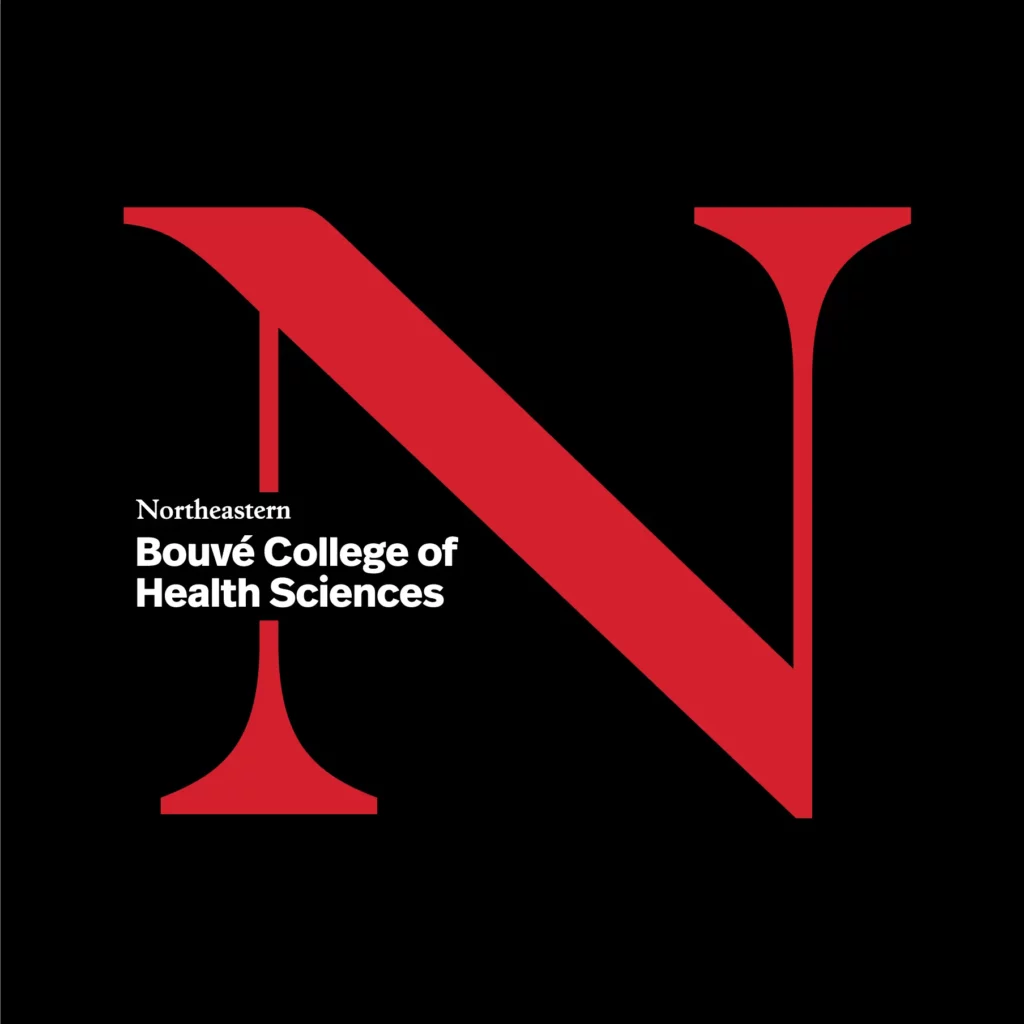YOU ARE BOUVÉ

The PhD in Nursing program at Northeastern University prepares future nurse-scientists to advance nursing through innovation and interdisciplinary inquiry to improve the health of individuals and communities. Graduates are expected to lead research initiatives that advance nursing science through knowledge development and interdisciplinary scholarly inquiry.

Students will study with nursing faculty who collectively have a variety of expertise and interests and whose research addresses questions that extend across a broad health spectrum.
In addition, students have an opportunity to study with faculty from other Northeastern departments, as well as with other Boston-area researchers. This collaboration allows students to work across disciplines and to access populations and sites essential for completing a dissertation
Degree: Nursing PhD
Application deadline: June 1
GRE: Required
Study options: Full-time/part-time
Post-master’s students (also referred to as Advanced Entry) will build on their prior degrees and clinical foundations by completing 48 semester hours, including the dissertation.
Post-baccalaureate students will complete 60 semester hours, including the dissertation.
On a full-time basis, students entering with a master’s degree can expect to commit a minimum of three years to completing the program; if entering with a bachelor’s degree, a minimum of four years. Both full- and part-time options are available to all students. Course descriptions can be found in the PhD Handbook.
Graduates are expected to lead multidisciplinary research initiatives that advance nursing and health care through knowledge development and interdisciplinary scholarly inquiry. Students will work with nursing faculty whose research address innovative questions that seek to advance knowledge for improvement of care. In addition, students will have an opportunity to collaborate with faculty across the broader Northeastern University community in addition to Boston area research and healthcare institutions. This collaboration allows students to work across disciplines and to access populations and research sites essential to the success of their original dissertation study.

The Baccalaureate, Master’s and Doctor of Nursing Practice programs at Northeastern University School of Nursing are accredited by the Commission on Collegiate Nursing Education, 655 K Street, NW, Suite 750, Washington, DC 20001, 202-887-6791
Sample curriculum, subject to change.
Both post-BSN and post-MSN students are expected to show satisfactory completion of a basic statistics course. Note: Post-BSN students will be required to take an epidemiology course as part of their PhD coursework.
8 courses, 3 credits each unless otherwise noted — 22 credits
NRSG 7700 Science of Nursing
NRSG 7705 Theoretical and Conceptual Foundations in Nursing Science
NRSG 7709 Qualitative Research Methods
NRSG 7712 Quantitative Research Methods
NRSG 7715 Measurement in Clinical Research
NRSG 7750 Health Care of Urban Populations
NRSG 7770 Research Colloquium (1 credit)
NRSG 7755 Intervention Research: Development, Implementation, and Evaluation
2 courses, 1-4 credits each · 6 credits
NRSG 9984
Students are required to complete 6 credits of supervised research practicum with a seasoned researcher. The purpose of the practicum is to develop student research skills through engagement with an active research project. Students must have a viable MA RN license. Research practicum activities vary and may include any or all of the following aspects of the research process:
In addition, post-baccalaureate students are required to take:
NRSG 5121 Epidemiology and Population Health
NRSG 7104 Foundations in Nursing Research (3
2 Elective Courses (6 credits)
Electives may be taken in nursing or in an area related to the student’s dissertation research, including appropriate methodology and statistics courses.
2 courses, 3 credits each · 6 credits
Cognates are courses that are taken outside the School of Nursing and should provide depth and breadth to the student’s phenomenon of interest.
2 courses, 3 credits each · 6 credits
PHTH 5210 Biostatistics
PHTH 6210 Applied Regression Analysis
4 courses, 3 credits each unless otherwise noted · 8 credits total
NRSG 9845 Dissertation Seminar 1
NRSG 9846 Dissertation Seminar 2
NRSG 9990/9991 Dissertation
*Note: A Massachusetts RN license is required by matriculation in the PhD program in order to do the research practicum component of the program. If you are a registered nurse, you may enter the PhD program after completing a baccalaureate or a master’s degree. A degree in nursing is preferred.
To apply to the PhD in Nursing you will need the following:
Current U.S. RN License*
Minimum GPA of 3.0
Official transcript(s) of ALL college-level study-to-date resume
Personal statement indicating applicant’s personal goals for obtaining a DNP and expectations of the program
A minimum GRE of 300 or equivalent for the verbal and quantitative combined, should be taken within the last five years
Three letters of recommendation that address your potential in a career in nursing research
Satisfactory completion of a basic statistics course
Personal Statement describing your goals, your reason for pursuing a PhD in nursing and your research area of interest
For international applicants TOEFL scores or IELTS scores
Amanda Choflet, DNP, RN, NEA-BC
617-373-3488
[email protected]
Graduate Admissions
617-373-2708



Utilization of the Pain Catastrophizing Scale for Postoperative Pain in Anesthesia
Chris Gill
Understanding college students’ motivations for the use and discontinued use of fitness related technology in relation to their physical activity behaviors
Jessica Wallar
Experiences of School Nurses Caring for Newly Arrived Immigrant and Refugee Children
Jacqueline Brady
An Exploration of the Influence of Stigma and Trauma in the Illness Representations of those Veterans who Decided to Initiate Treatment for Hepatitis C Virus
Casey Garvey
Toward an Understanding of Suicidal Ideation Among Career Firefighters
Elizabeth Henderson
Mold Exposure Levels in Inner-City Schools and Homes: An Examination of the Relationship Between Fungal Exposure and the Prevalence Rate of Asthmatic Symptoms Among Children Ages 5 to 15
Evin Howard
New-onset Delirium among Elderly Acute Care Orthopedic Trauma Patients: Sleep Disturbance and Nutritional Status as Modifiable Risk Factors
Susan Maher
Stress, Resilience and Reintigration Among Post-9/11 US Veterans: A Holistic Investigation
Anna Etchin
Exploring the Issues of HIV Post Exposure Prophylaxis and Sexually Assaulted Individuals
Meredith Scannell
Charting the Path from Diagnosis to Treatment: A Grounded Theory Study of Ovarian Cancer
Rachel Pozzar
Northeastern offers two different doctoral degrees in nursing: the Doctor of Philosophy (PhD) and Doctor of Nursing Practice (DNP). The PhD is a research-oriented degree, while the DNP is practice-oriented. Nurses interested in leadership might be interested in the DNP, whereas those interested in becoming nurse scientists would be a good fit for the PhD program.
A select number of competitive Graduate Assistantships are available for doctoral students. Graduate Assistantships cover tuition and include a stipend in exchange for working 20 hours/week as a research or teaching assistant.
NOTE: Graduate Assistantships are awarded each academic year.
You may be able to transfer in up to 9 credits that have not been previously used towards another degree and were taken at the graduate level for a grade of B or better. Students must receive approval from the program director prior to transferring courses and must be enrolled in the program in order to begin the transfer process.
More information about Northeastern University’s transfer policy can be found in the Bouve Transfer Policy.
Full-time or part-time enrollment is available. Students who attend full-time complete the degree in five continuous semesters (21 months).
Students who attend part-time usually complete the degree in three years. Students must consult with the financial aid office to assure PT status is acceptable for loan eligibility. All students (full-time or part-time) must take the NRSG7100 Leadership in Advanced Nursing Practice course as the first course which is offered in the Fall.
Yes, we would be happy to put you in touch with our faculty. Please send your query along with a description of research interests so that you can be appropriately matched to:
Dr. Rhonda Board
Program Director
[email protected]